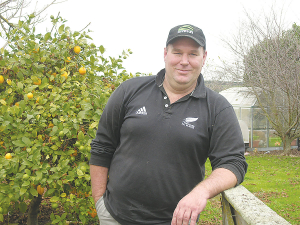Reaction to the latest missive from the Government is somewhat muted and there appears to be a sense of suspicion of where emissions pricing may end.
Among the sceptics is Federated Farmers president Andrew Hoggard who says the response is so high level they may not be able to clearly understand the detail until they actually see it when introduced as legislation later this year.
Hoggard says at a high level some of the changes seem to be improvements and it appears to have moved back somewhat closer to the original He Waka Eke Noa proposal from industry in May. However, he says large concerns and unrealistic timelines remain in place.
"We know that the whole world is watching on, aghast at what NZ is doing, in the midst of a global food crisis," Hoggard told Rural News. "Everyone else is talking about food security and working with farmers to develop practical on-farm solutions."
He adds that only NZ is taking the punitive step of taxing efficient unsubsidised food production, even if it comes at huge costs.
Beef+Lamb NZ chief executive Sam McIvor says the report is a significant improvement on the Government's October proposal, but adds that much work still needs to be done on critical details before sheep and beef farmers can feel confident in the final agricultural emissions pricing system.
McIvor says farmers are highly concerned about the impacts of agricultural emissions pricing and won't stop working for the right outcomes.
"We're not there yet, as there are a lot of details to work through, but we have moved closer to what the HWEN partners recommended in our November submission," he says.
McIvor says sequestration remains a key area of focus for B+LNZ. He says though the section 215 report commits in principle to recognising all categories of sequestration and transitioning to the ETS, there is more clarity required and work to be done.
Meanwhile DairyNZ chair Jim van der Poel says what the Government has come back with is more closely aligned with what the sector proposed earlier this year, "but the devil will always be in the detail".
He says farmers are already facing huge cost pressures with rising interest rates and on-farm inflation driven by feed, fuel and chemical prices.
"Emissions pricing is going to add yet another cost, so it's important we continue work to achieve emissions reductions in a fair, practical and equitable way," van der Poel told Rural News. "Throughout this entire process, DairyNZ has maintained that 'no deal is better than a bad deal' and we would never accept an emissions pricing system that would put our farmers or rural communities at risk - and we stand by that."











